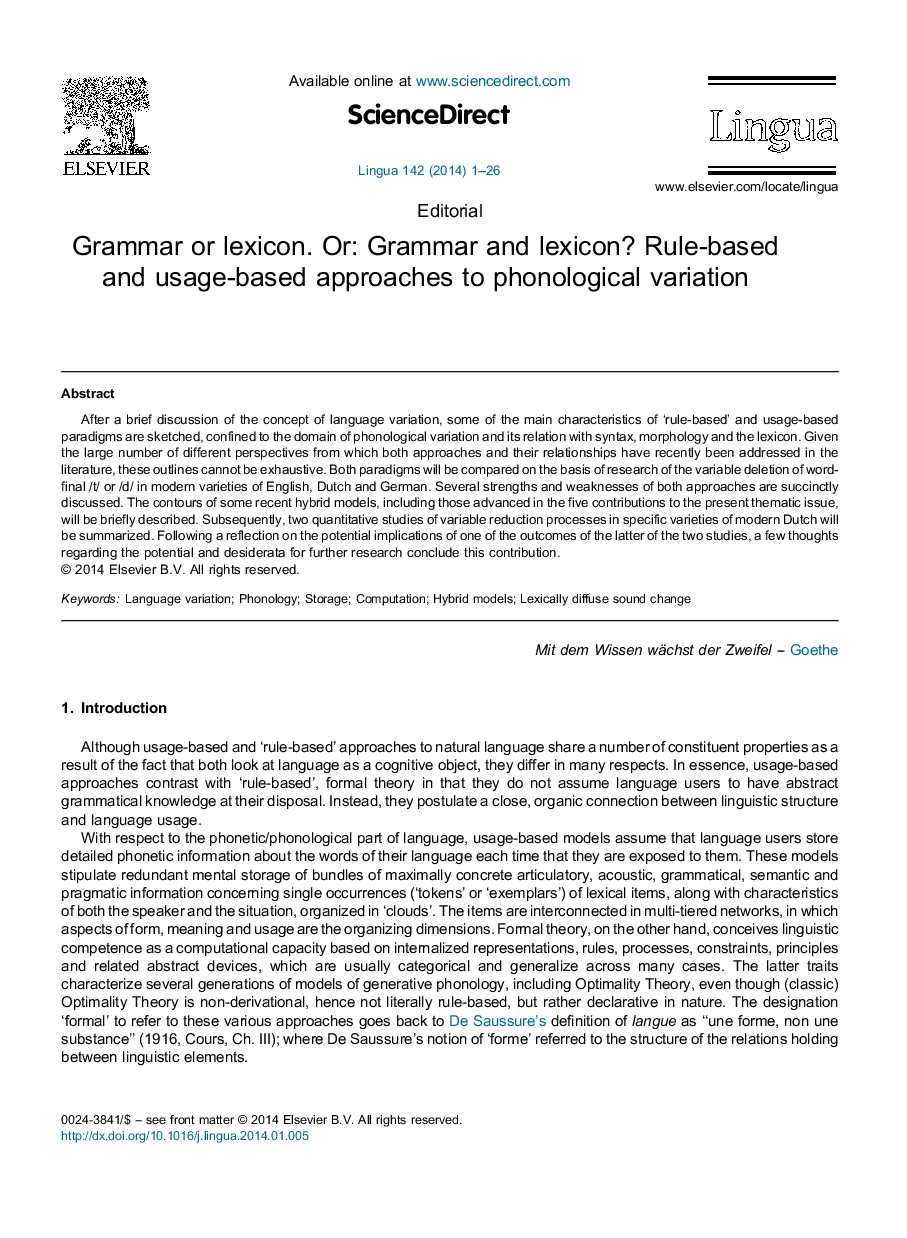| Article ID | Journal | Published Year | Pages | File Type |
|---|---|---|---|---|
| 935541 | Lingua | 2014 | 26 Pages |
•Usage-based and rule-based accounts of language and language variation.•Strengths and weaknesses of both approaches to the study of language variation.•Outlines of several recent hybrid models, including those advanced in the present issue.•Two comparative studies of ongoing changes involving reduction in modern varieties of Dutch.•Questions and suggestions for future research.
After a brief discussion of the concept of language variation, some of the main characteristics of ‘rule-based’ and usage-based paradigms are sketched, confined to the domain of phonological variation and its relation with syntax, morphology and the lexicon. Given the large number of different perspectives from which both approaches and their relationships have recently been addressed in the literature, these outlines cannot be exhaustive. Both paradigms will be compared on the basis of research of the variable deletion of word-final /t/ or /d/ in modern varieties of English, Dutch and German. Several strengths and weaknesses of both approaches are succinctly discussed. The contours of some recent hybrid models, including those advanced in the five contributions to the present thematic issue, will be briefly described. Subsequently, two quantitative studies of variable reduction processes in specific varieties of modern Dutch will be summarized. Following a reflection on the potential implications of one of the outcomes of the latter of the two studies, a few thoughts regarding the potential and desiderata for further research conclude this contribution.
